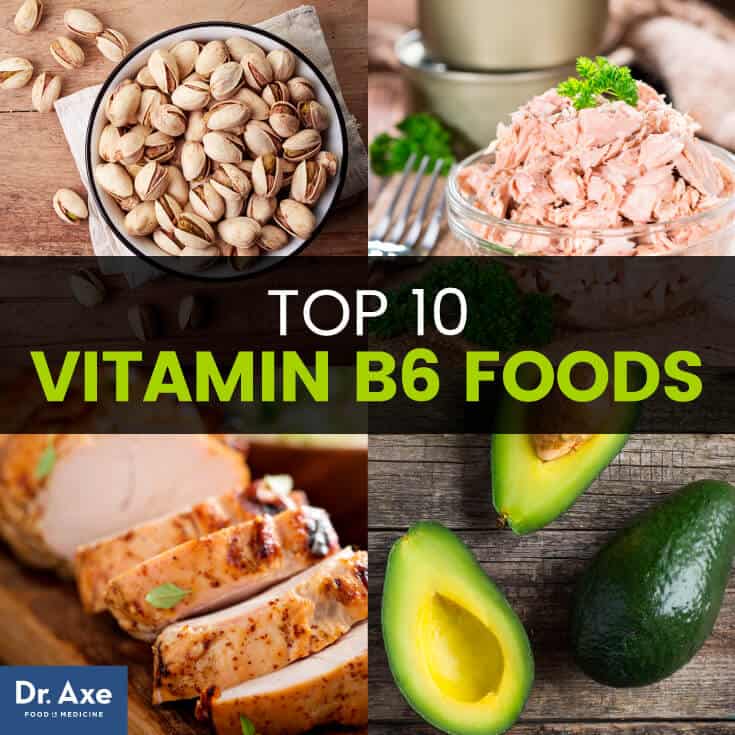
Hi, Good afternoon, this time will bring about foods containing vitamin b The Best Sources of Vitamins B-6 & B-12 see in full

By Paula Martinac Updated December 02, 2018
Vitamins B-6 and B-12 are water-soluble nutrients. Individually, these nutrients play different roles in the body, but together, they may help lower homocysteine levels in your blood – which may in turn reduce your risk of heart disease. Only a small percentage of Americans get enough B vitamins from their diet alone, so ask your doctor if you should take a B supplement.
Vitamin B-6 Benefits
Your body uses small amounts of B vitamins daily. Most adults require just 1.3 micrograms of vitamin B-6, but pregnant and lactating women and adults over age 51 need more. Vitamin B-6 plays an important part in metabolizing the protein, carbs and fats from the foods you eat, and it assists with cognitive development. Research suggests that B-6 may also help prevent cancer. A meta-analysis, published in the Journal of the National Cancer Institute in 2016, found strong evidence that this vitamin reduces the risk for all cancers, but it’s especially effective against gastrointestinal tumors.
Best Food Sources of Vitamin B-6
Animal protein supplies some of the richest amounts of vitamin B-6, offering between 0.3 and 0.9 micrograms in a regular 3-ounce serving. Good sources include:
- Beef liver
- Tuna
- Salmon
- Chicken breast
- Turkey breast
- Ground beef patty
Chickpeas are one of the best vegetarian sources of B-6; a 1-cup serving supplies most of your recommended daily requirement. Other rich plant-based sources that supply between 15 and 38 percent of your daily needs include fortified breakfast cereals, potatoes, bananas, bulgur and winter squash. You’ll receive about 8 percent of your daily vitamin B-6 needs from eating a half-cup of the following foods:
Vitamin B-12 Benefits
Most adults need 2.4 micrograms of vitamin B-12 a day, but pregnant and nursing women need more. This vitamin helps your body form new red blood cells, and it also supports neurological function. A review published in Nutrition Research in 2016 pointed to a strong connection between a deficiency in B-12 and increased risk for both dementia and stroke.
Best Food Sources of Vitamin B-12
Foods containing animal protein are the best sources of B-12. Clams are, by far, the richest source, supplying a whopping 84 micrograms in a 3-ounce serving. With 71 micrograms in the same size serving, beef liver is a close second. Other excellent animal-food sources include:
- Trout
- Salmon
- Tuna
- Haddock
- Top sirloin beef
- Ham
- Chicken breast
- Egg
- Yogurt
- Milk
- Swiss cheese
If you’re a vegan and you eat no animal foods, you may find it difficult to get adequate amounts of B-12 from your diet. Food manufacturers fortify breakfast cereals with vitamin B-12, but in varying amounts, so check the label to find out how much B-12 your favorite cereal contains. Other plant-based sources include a cup of fortified plant milk, such as almond, coconut or soy, and a tablespoon of nutritional yeast. Ask your doctor if you need to take a B-12 supplement.
Paula Martinac is a nutrition educator, writer and coach. She holds a Master's of Science in Health and Nutrition Education and is Board Certified in Holistic Nutrition. Her areas of research interest include stress, weight management and women's health.
Oke details about The Best Sources of Vitamins B-6 & B-12 hopefully writing this helpful salam
Articles this was posted on label foods containing vitamin b, foods containing vitamin b3, foods containing vitamin b1,
Comments
Post a Comment